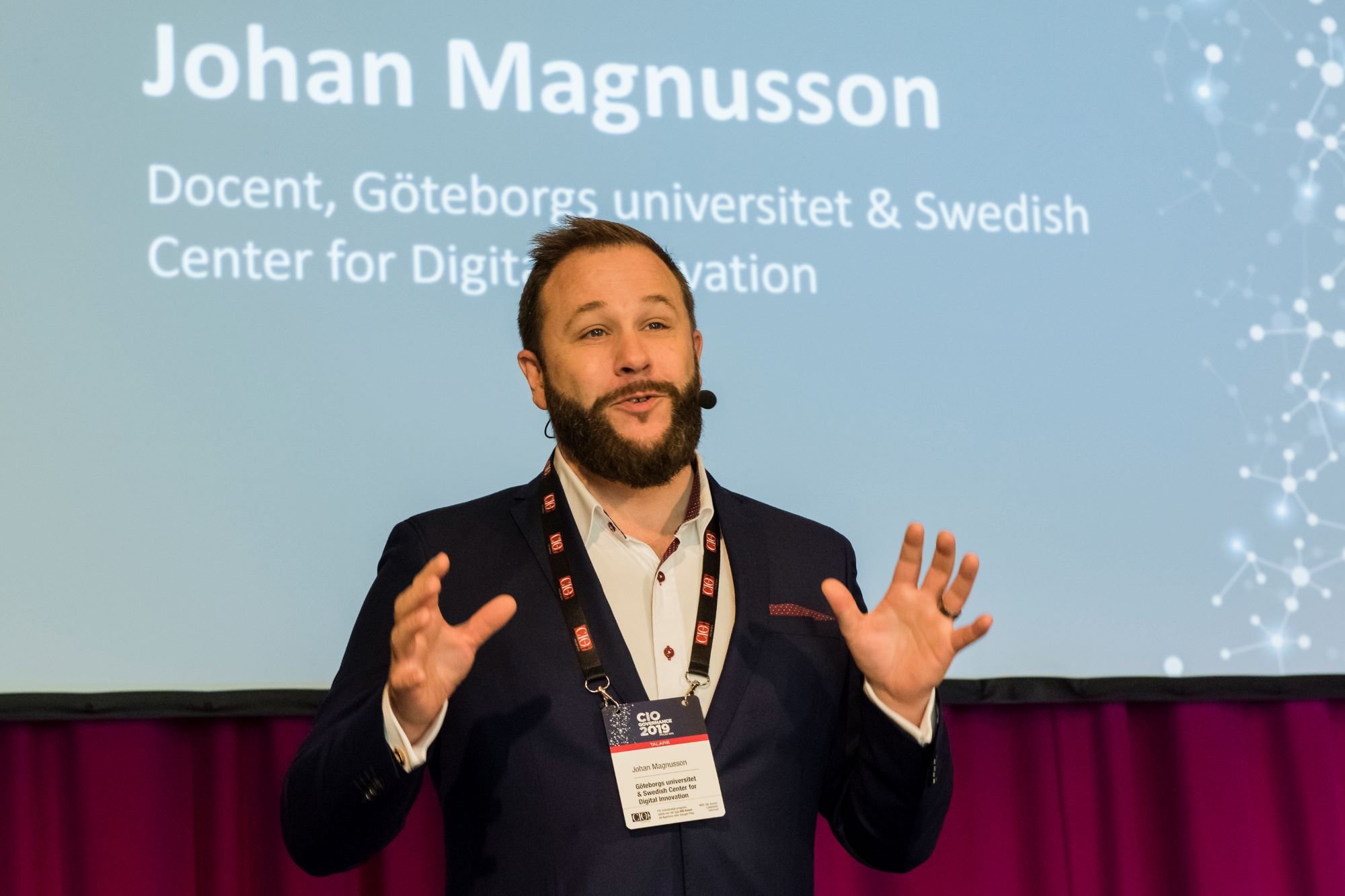With an ageing population and fewer health care workers, digitalisation in the public sector must go faster, says Professor Johan Magnusson at the University of Gothenburg. – The welfare technology companies have a very important and responsible role in this digitalisation, he says.
Johan Magnusson is a professor at the «Department of Applied Information Technology» at the University of Gothenburg, and his research is about the balancing of innovation and efficiency in the digitalisation process.
Based on his own research and experience, Magnusson is clear that digitalisation is an important part of the solution to the challenges in the public health and care sector in Sweden. He defines digitalisation as «a method of business development where digital solutions are used for automation or innovation».
Although Johan Magnusson's research is from Swedish healthcare, digitalisation is also currently a hot topic throughout the Nordics, the UK and Europe.
Digitalisation increases efficiency
Magnusson believes it is important that you first agree on defining digitalisation and what it entails, so that you have the same starting point when discussing the possibilities. Because, according to the professor, there is no doubt that digitalisation strengthens both the efficiency and the quality of public healthcare – among other things by freeing up time for healthcare workers for priority tasks.
– The Swedish population is living longer and getting older, and we have major challenges with staffing in the public sector in the near future. We have to invest in technology and use digital solutions when there are not enough hands to care for those who need it. Productivity must simply increase, says Magnusson.
The so-called «senior wave», which describes the fact that more and more of us are living longer, is global. According to UN forecasts, the proportion of people over the age of 65 will make up more than 16 per cent of the world's population in 2050, compared to 9.7 per cent in 2022.

Digitalisation is going too slowly
Professor Magnusson believes it is urgent to digitalise healthcare to meet the oncoming demographic challenges and availability of healthcare workers.
– People are already dying in Swedish healthcare as a result of limited resources, and it cannot continue like this. We must introduce and scale up digital solutions in healthcare as quickly as possible and get away from a system where everything must be tested and piloted everywhere in the public sector. To achieve this, we must at the same time create a culture of change that is transparent and get the businesses to cooperate, he says.
Magnusson goes on to point out that several companies already have well-functioning welfare technology that can help solve the challenges in Swedish healthcare, but many municipalities are «terrified» of the changes it will bring.
– It involves enormous costs for society to continue as we do today, and it is a waste of money. We know, for example, that digital monitoring of the elderly with fall sensor technology works well in elderly care, and that the introduction of this is positive for both the efficiency and quality of the care, says Magnusson, adding rhetorically: «What will it cost NOT to invest in this?»
The welfare system may collapse
Professor Magnusson says that the starting point in the Swedish healthcare system is that «everything should be as it has always been», and he is worried about the consequences if the pace of digitalisation does not increase sharply.
– If we do not increase the speed of digitalisation, the Swedish welfare system as we know it today will collapse. We see that this has already happened in several local authorities, and that the trend is accelerating. There are already large inequalities in Swedish healthcare, and those who do not introduce digital solutions end up even further behind. We have no choice, he says.
According to Magnusson, better cooperation between regions and their local authorities is the recipe for speeding up digitalisation.
– Many of the municipalities that are the furthest behind with digitalisation cannot catch up. Both local authorities and their wider regions must become better at collaborating and learning from each other in order to introduce approved and effective systems widely, instead of the municipalities having to do it one by one. In Sweden, we are now seeing several cases of digital municipal mergers, where they come together to reprioritise resources and collaborate on joint digitalisation, he says.
Move digitalisation to the workplace
Professor Johan Magnusson also believes that digitalisation itself must be moved from the IT departments to the workplace, where those who will use the systems are located.
– The developers of the digital systems must work closely with those who will use them, so that together they develop systems that work as best as possible for each individual local authority. It is one of the keys for the implementation of welfare technology to work, but also at the same time to create a culture which implies that it is OK to make mistakes, he says.
The welfare technology companies have a very important and responsible role in the digitalisation of healthcare, according to Magnusson.
– Almost no Swedish local authorities have the expertise to purchase such welfare technology systems, and many are sceptical of both the systems and those who offer them. The welfare technology companies themselves must contribute to do something about this knowledge deficit and educate key people in the municipalities in why digitalisation is necessary for healthcare to function in the future, he says.

